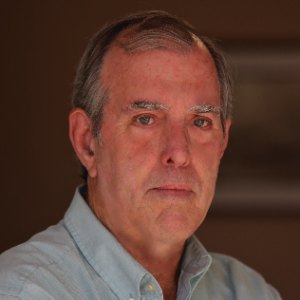Police unions, power, and the people
June 21, 2020

Daniel Blackburn
OPINION By DANIEL BLACKBURN
Some years ago, I got a phone call at the beachside newspaper at which I was toiling from the city manager of Redondo Beach. He wanted to have lunch.
Bill Kirchhoff had only recently taken the top staff job at the city, and we had yet to meet in person. He wanted to link up at a little restaurant well removed from his office.
When I arrived, Kirchhoff was already at a booth; next to him perched a substantial pile of file folders.
He got right to the point: the folders contained a wide variety of citizen complaints against a number of members of the Redondo Beach Police Department. He used the phrase “egregious” to describe the local cops’ behavior. It seemed that more than a few liked to kick a little ass from time to time. Several of the officers had as many as 17 complaints featuring flagrant abuses of authority.
Shortly after he took office, Kirchhoff said, he learned two related things: first, he was expected to silently sign off on each of the complaints which awarded generally substantial settlements, and second, the police officers’ union in that city of 60,000 plus was not to be messed with, as it was not only powerful, but popular in the community.
Instead of rubber-stamping the settlements, which cumulatively totaled several million dollars, Kirchhoff decided to shine a little sunlight on the matter, and I returned to my little cubicle at Easy Reader with folders in hand.
Thereafter, all hell broke loose. But not in the way you might think.
I got to reminiscing about this as I recently watched police unions in city after city in this country blindly defending member cops who have proven to be trigger-happy, violence-prone, threats to society in myriad other ways… kind of a “if it’s blue, it’s true” attitude.
It was no secret locally that the Redondo Beach Police Department employed front-liners who were, in a word, aggressive. The opulent beach cities’ denizens were awash with cocaine at the time, and drug busts were frequent and often operationally questionable. And I knew personally two top cops who liked to cut out a little contraband coke for themselves en route to the evidence locker. (For reasons that now escape me, that wasn’t all that shocking at the time.)
As I hammered out a series of articles naming names and citing details of the complaints, an outraged police force searched for my source.
They may have suspected Kirchhoff, but the cops had no way of knowing for sure because there were two or three others who were in a position to provide the same information.
Kirchhoff once told me that he was the only barrier between the people’s money and a horde of special interests. And the cops’ union usually led the horde.
The city manager managed to get under the skin of the local union in other ways, particularly when it came to budget time.
So it came to be that it wasn’t long before the union and its members had a gut full of Kirchhoff’s stubborn guardianship of the city’s tax coffers.
Now then… you need the big picture here.
City managers work at will as employees of a city council. Managers negotiate with police unions. Managers then take the proposed contract and annual city budget proposals to their council. The councils are made up of folks who won’t hold office in a few years, but will live in the community forevermore. They okay outrageous municipal pensions and always, as in always, back the cops’ funding.
In Kirchhoff’s case, the cops’ union members, wives, children, and friends lined up to dominate public comment with criticism at consecutive council meetings while the manager sat stoically.
Short story, goodbye, Bill Kirchhoff, who eventually departed with three years salary in his pocket and who now lives a relatively stressless life somewhere south of San Diego.
Anyway, the moral of this story is not “don’t f**k with police unions.” It’s more like, reasonable people need to start electing folks to local office who have a measure of common sense.
If not now, when? Do we not reap what we sow?
Daniel Blackburn is a co-founder of CalCoastNews and can be threatened at blackburn.danielj@gmail.com.






The comments below represent the opinion of the writer and do not represent the views or policies of CalCoastNews.com. Please address the Policies, events and arguments, not the person. Constructive debate is good; mockery, taunting, and name calling is not. Comment Guidelines